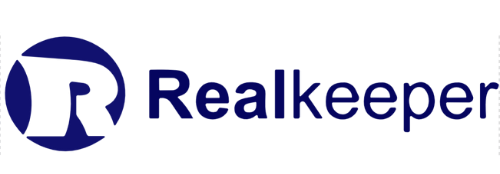Running a restaurant requires more than just good food and exceptional customer service; it also requires managing finances effectively. Whether you operate a small café, a multi-location franchise, or a fine dining establishment, keeping track of expenses, inventory, payroll, taxes, and other financial aspects is crucial for long-term success. This is where Best Accounting Software for Restaurants becomes an invaluable tool.

In this comprehensive blog, we will explore how Accounting Software for Restaurants benefits businesses, the essential features to look for, and some of the best options available. By the end, you’ll have a thorough understanding of how to choose the right accounting software and why it’s vital for the financial health of your restaurant.
Why Accounting Software is Important for Restaurants
- Streamlining Financial Operations: Restaurants deal with a high volume of transactions, from customer payments to vendor purchases. Accounting software automates these processes, ensuring accuracy, efficiency, and a clear financial picture.
- Real-Time Insights: Restaurant owners and managers need to make quick decisions, especially in high-demand situations. With accounting software, you can access real-time financial data, providing insights into cash flow, profitability, and operational costs.
- Better Inventory Management: Managing stock levels for ingredients and supplies is critical in the restaurant industry. Many accounting software solutions integrate with POS systems to automatically track inventory levels, reducing the risk of stockouts or overstocking.
- Compliance with Tax Regulations: Restaurants must comply with various tax regulations, such as sales tax and payroll tax. Accounting software helps calculate taxes automatically, keeping your business compliant with local and national regulations.
- Improved Decision-Making: Detailed financial reports generated by accounting software allow restaurant owners to analyze performance trends and make data-driven decisions. This helps in areas like menu pricing, staff scheduling, and vendor negotiations.
- Labor Cost Management: Labor is one of the largest expenses for restaurants. Accounting software with integrated payroll functionality ensures accurate wage payments and tracks labor costs in real-time.
Key Features of Restaurant Accounting Software
Before selecting accounting software for your restaurant, it’s important to understand the key features that will best suit your specific needs. Below are some essential features to look for:
1. Point of Sale (POS) Integration
Most restaurants use POS systems to manage transactions. Good accounting software should integrate seamlessly with your POS system, allowing sales data to be automatically synced with the accounting platform. This integration eliminates the need for manual data entry and reduces the chances of errors.
2. Inventory Management
Inventory is one of the most critical elements of a restaurant. Accounting software with built-in or integrated inventory management allows you to monitor stock levels, track usage, and even automate reordering processes. This feature ensures you have enough ingredients to meet demand without overstocking.
3. Payroll Management
Managing employee wages, tips, bonuses, and payroll taxes is an essential aspect of running a restaurant. Accounting software that offers payroll management will simplify the process by automating pay schedules, ensuring compliance with labor laws, and providing accurate tax calculations.
4. Expense Tracking
From food and beverage costs to utility bills and marketing expenses, tracking outgoing payments is vital for controlling costs. Accounting software should categorize expenses, making it easier to analyze where your money is going and where cost-saving opportunities lie.
5. Multi-Location Support
For restaurant chains or businesses with multiple locations, the accounting software must support multi-location management. This feature allows you to consolidate financial data across all branches, offering a unified view of the business’s overall performance.
6. Tax Management
Compliance with tax laws can be complex, especially when dealing with varying tax rates for food, beverages, and services. Accounting software should automatically calculate sales taxes, track tax liabilities, and generate necessary tax forms, ensuring that your restaurant stays compliant with local and federal regulations.
7. Reporting and Analytics
A robust reporting system allows you to generate detailed financial statements, profit and loss reports, and balance sheets. These reports provide actionable insights into the financial health of your restaurant and help with strategic planning.
8. Mobile Access
In the fast-paced world of restaurants, owners and managers may not always have time to sit in front of a computer. Mobile access to accounting software ensures you can check key metrics, approve invoices, and review financial reports from anywhere, at any time.
Benefits of Using Accounting Software in Restaurants
1. Enhanced Efficiency
With automated features such as POS integration, inventory tracking, and payroll management, accounting software reduces manual workload. This not only saves time but also reduces the likelihood of human error.
2. Better Financial Planning
Accounting software provides you with up-to-date financial data that can be used for forecasting, budgeting, and financial planning. You can track seasonal trends, monitor profit margins, and adjust strategies to improve your restaurant’s financial performance.
3. Improved Cash Flow Management
Restaurants often operate on tight margins, and cash flow management is critical. Accounting software provides a clear view of your cash flow, allowing you to identify periods of low liquidity and plan accordingly. This helps in ensuring that you always have enough cash on hand to cover expenses.
4. Accurate Pricing
By understanding your food costs, labor expenses, and overheads, accounting software enables you to set accurate menu prices that maintain profitability while remaining competitive. With real-time data, you can also adjust pricing based on demand, seasonality, or changes in supplier costs.
5. Simplified Tax Filing
Preparing for tax season is often a stressful task for restaurant owners, but accounting software simplifies the process by automatically tracking tax liabilities, generating tax reports, and ensuring compliance with applicable laws. This reduces the risk of costly penalties.
6. Increased Profitability
By analyzing financial reports, restaurant owners can identify inefficiencies, optimize spending, and increase profitability. Accounting software helps you pinpoint areas where cost reductions can be made, such as renegotiating supplier contracts or adjusting staff hours based on peak times.
7. Scalability
Whether you run a small café or a growing restaurant chain, accounting software can scale with your business. As your restaurant expands, the software can handle the increased volume of transactions, locations, and financial data without compromising performance.
Challenges of Implementing Accounting Software in Restaurants
While accounting software offers numerous benefits, it’s important to be aware of potential challenges:
1. Cost
Some advanced accounting software solutions can be expensive, particularly if you need additional features like payroll management or multi-location support. However, the long-term savings in terms of efficiency and accuracy often outweigh the initial cost.
2. Training
Implementing new software requires time and effort for training. Staff members, especially those with little to no experience in accounting, may need time to adapt to the system.
3. Integration Issues
Not all accounting software integrates smoothly with existing restaurant systems, such as your POS or inventory management software. Before purchasing, ensure that the software will work with your current setup or be prepared for potential integration challenges.
4. Data Security
Handling sensitive financial data requires strong security measures. Make sure that the accounting software you choose offers robust encryption and security protocols to protect your restaurant’s financial information.
Best Accounting Software for Restaurants 2024
Several accounting software solutions cater specifically to the needs of restaurants. Below are some of the best options available:
1. Realkeeper
Realkeeper App is used by Businesses for Lead Management, Invoicing/ Billing, CRM & Business Accounting. lets manage your Lead invoice, estimate, payment, expenses, inventory, and Customers.
link: realkeeper
1. QuickBooks
QuickBooks is a popular choice for small and medium-sized restaurants. It offers features such as POS integration, inventory management, and payroll processing. The software is also known for its ease of use, making it ideal for restaurant owners who may not have a background in accounting.
link: QuickBooks
2. Xero
Xero is cloud-based accounting software that is great for multi-location restaurants. It provides real-time financial data, expense tracking, and inventory management. Xero also integrates with a wide range of POS systems and other restaurant management tools, making it highly adaptable.
link: Xero
3. Restaurant365
Restaurant365 is an all-in-one accounting and operations management platform designed specifically for restaurants. It offers advanced features like POS integration, multi-location support, payroll management, and detailed reporting. It’s ideal for larger restaurant businesses or franchises looking for a comprehensive solution.
link: Restaurant365
4. TouchBistro
TouchBistro is primarily a POS system, but it also offers accounting features tailored for restaurants. It integrates with various accounting software platforms like QuickBooks and Xero, providing features like inventory management, sales tracking, and financial reporting.
link: TouchBistro
5. Wave
Wave is a free accounting software solution that offers basic features like income and expense tracking, invoicing, and financial reporting. While it may lack some advanced features like payroll management or multi-location support, it’s an excellent choice for small restaurants with limited budgets.
link: Wave
How to Choose the Right Accounting Software for Your Restaurant
Selecting the right accounting software can be a daunting task, given the number of options available. Here are some factors to consider when making your decision:
1. Restaurant Size and Needs
The size of your restaurant and the complexity of your financial operations should guide your choice. A small café may only need basic accounting features, while a large restaurant chain might require multi-location support and advanced reporting.
2. Budget
Accounting software comes in a range of price points, from free options like Wave to more expensive solutions like Restaurant365. Determine your budget and prioritize the features that are most important for your restaurant.
3. Ease of Use
The software should be user-friendly, especially if you or your staff have limited experience with accounting. Look for a platform that offers a clean interface and easy navigation.
4. Integration with Existing Systems
Ensure that the accounting software integrates seamlessly with your existing restaurant management tools, such as your POS system, inventory management software, and payroll systems
Conclusion
In today’s fast-paced and competitive restaurant industry, efficient financial management is key to long-term success. Accounting software designed specifically for restaurants can help streamline operations, reduce manual workload, and provide real-time insights into your financial health. From tracking inventory and managing payroll to ensuring tax compliance and offering detailed financial reports, the right accounting software will enable restaurant owners to make informed decisions that enhance profitability and efficiency.
Selecting the best accounting software for your restaurant depends on several factors, including your business size, budget, and specific features you require. Whether you run a small café or a multi-location restaurant chain, the right accounting software can help you achieve greater financial control, improve cash flow, and increase profitability.
As you evaluate different options, remember the importance of POS integration, inventory and payroll management, tax compliance, and ease of use. Ultimately, investing in accounting software is a smart move for any restaurant looking to simplify its financial processes and focus more on delivering exceptional food and service.
By leveraging modern accounting tools, restaurants can not only improve their operational efficiency but also stay competitive in an ever-evolving market. Whether you opt for a robust platform like QuickBooks or a more industry-specific solution like Restaurant365, the right choice will depend on your restaurant’s unique needs and goals. With the right software, you can spend less time worrying about the books and more time doing what you do best—serving great food to happy customers.



